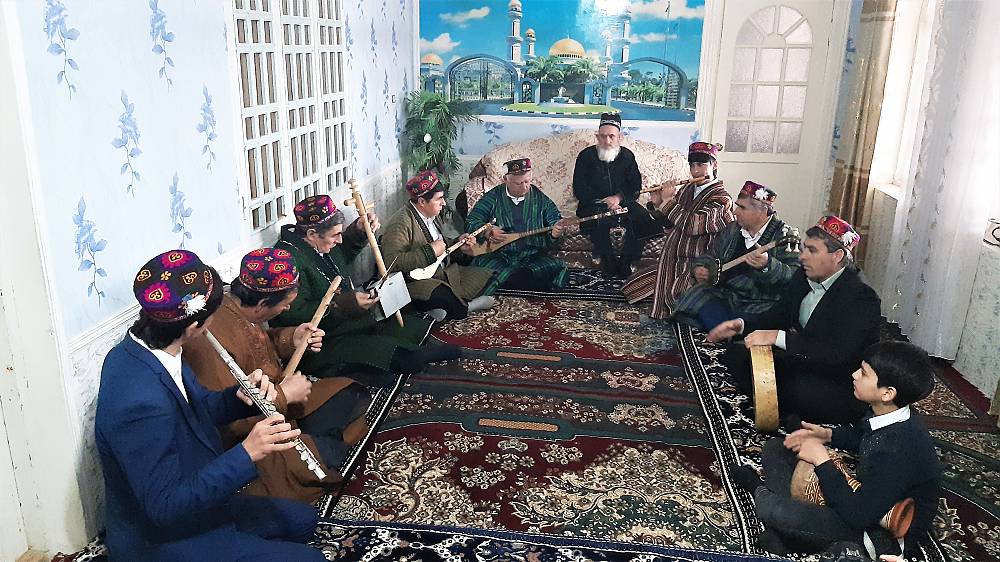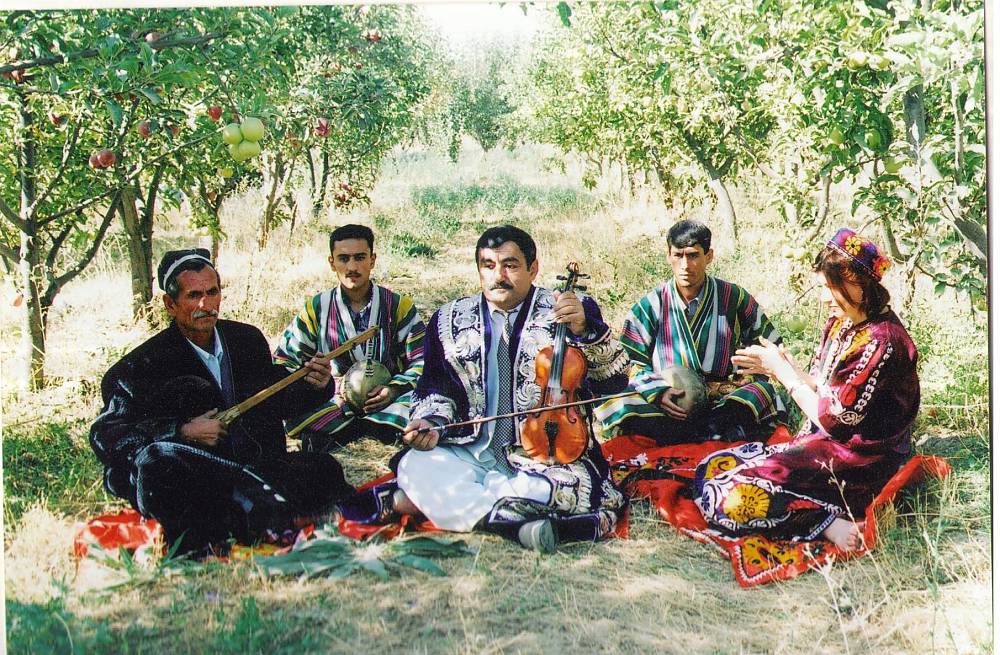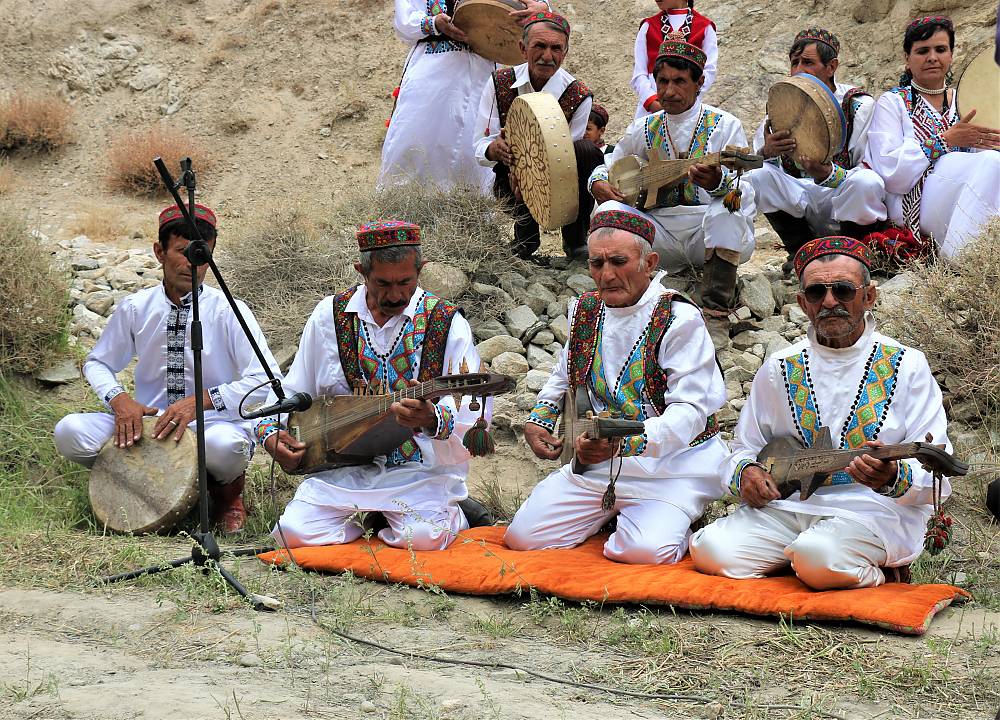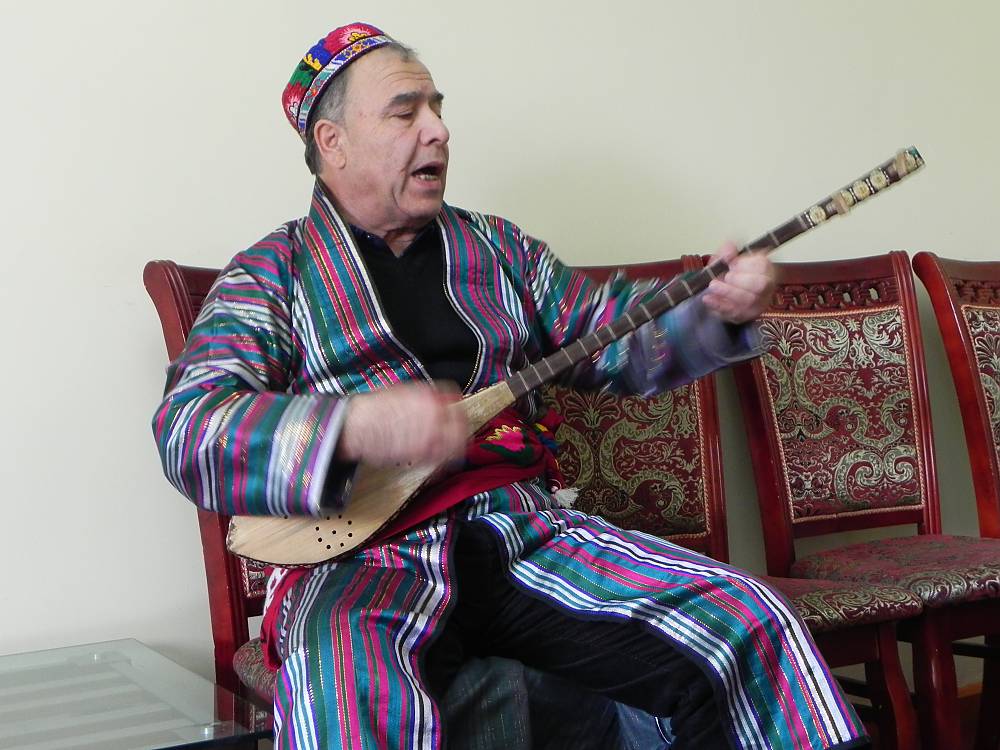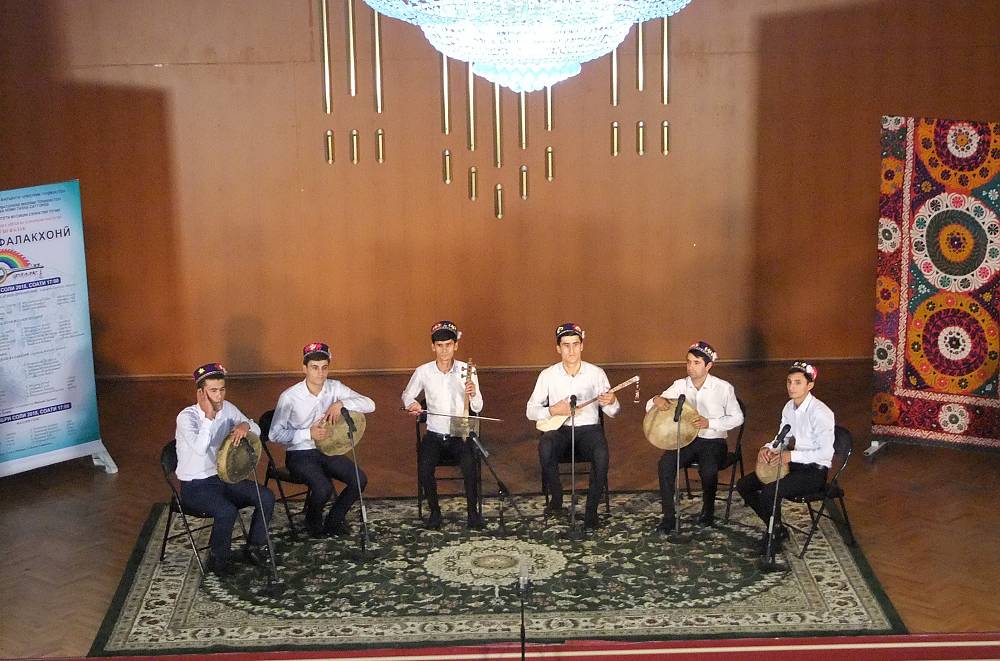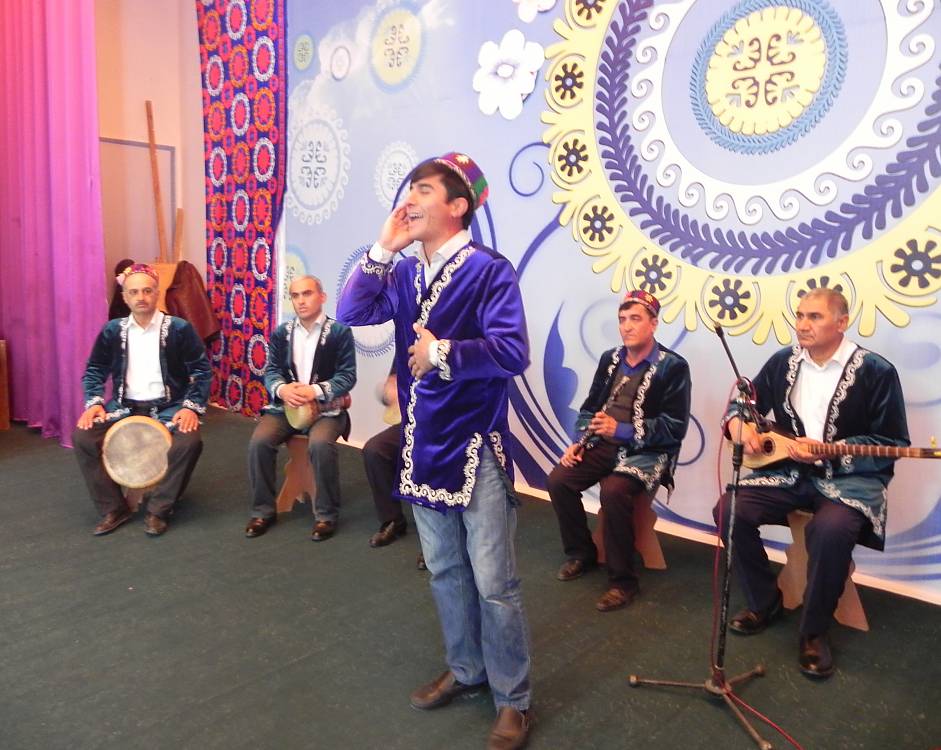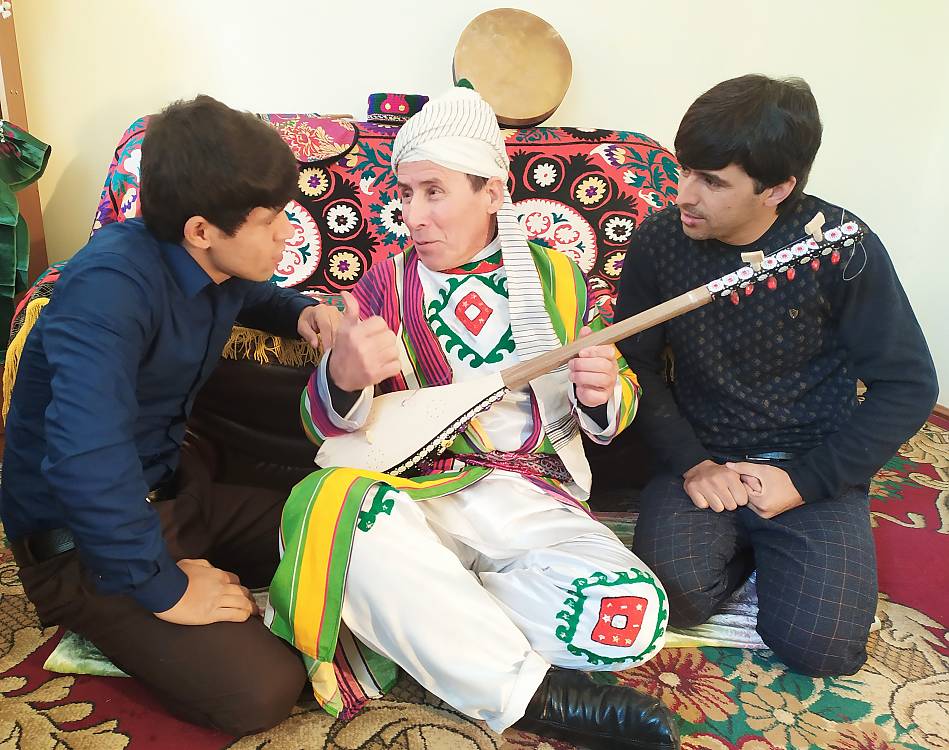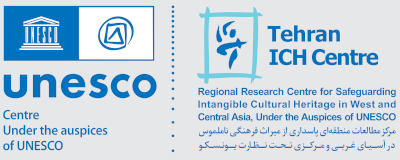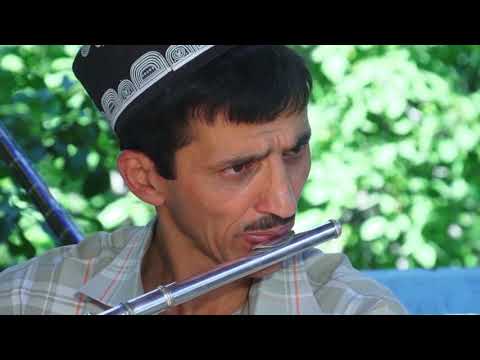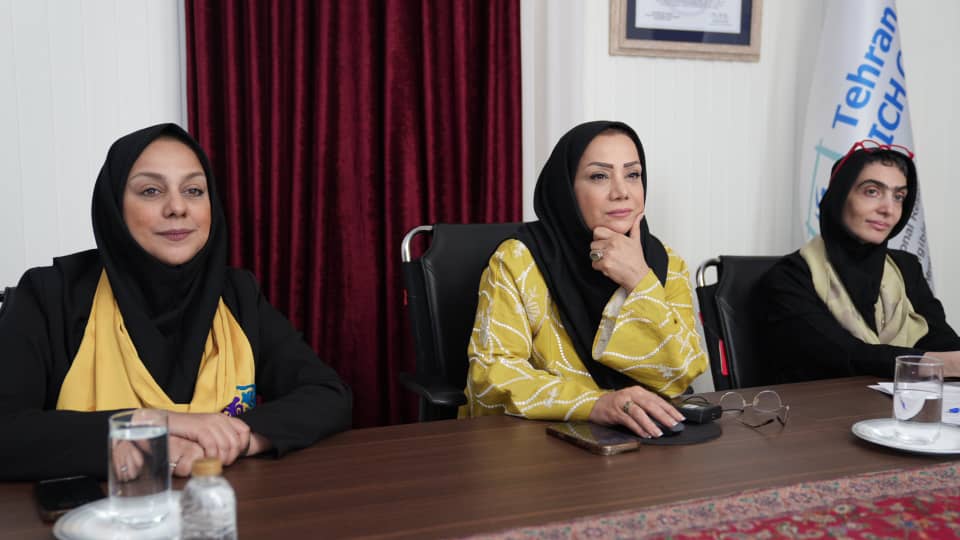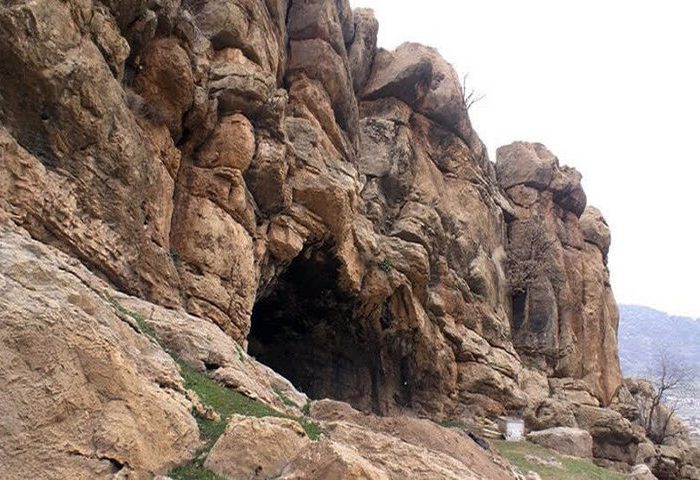Falak, meaning ‘heaven’, ‘fortune’ and ‘universe’, is the traditional folklore music of the mountain people of Tajikistan. The expressive and philosophical musical genre may be performed by a male or female soloist, either acappella, or with a single instrumental accompaniment or an ensemble and dancers. Characterized by their high range, falak songs most often relate to love, pain, suffering, the homeland, and separation and the hope of reunion between a parent and a child or between two lovers. The instruments used for falak performances include traditional Tajikistani percussion and string instruments, such as violins and flutes. Falak performers, known as falakkhons, are the traditional singers and instrumentalists who perform falak during festivities, ceremonies and ritual events. However, the music may be performed in many contexts, including outdoors while working in the fields or looking after herds in the mountains, or during feasts and social gatherings. It is also performed during the annual ‘Day of Falak’ festival. Falak is viewed as a state of mind and an identity marker for the mountain communities. The tradition is passed from one generation to the next within families and through formal education.
